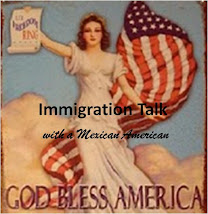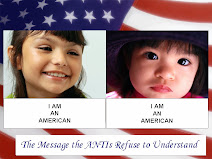 HP Reports: In 1994, America Ferrera was 9-years-old and living with her family in Los Angles when her mother took her aside for a conversation adults who are not Latino may find shocking.
HP Reports: In 1994, America Ferrera was 9-years-old and living with her family in Los Angles when her mother took her aside for a conversation adults who are not Latino may find shocking. A wave of anti-immigrant sentiment and complaints about draining public resources aimed at the state’s then-growing undocumented immigrant population had inspired a ballot initiative and new law, Proposition 187. The measure -– passed by a wide margin of California voters but later deemed unconstitutional by a federal court –- sought to create a state-run citizenship screening program.
“My mother said, ‘Listen, someone may ask you what you are and where you are from. Don’t let anyone scare you. You are an American',” Ferrera told a group of mostly Latino elected officials, activists, students and reporters gathered at an event to unveil America4America.com, a website she is committed to that highlights voter mobilization, labor and other groups to energize the Latino electorate.
The irony in a childhood tale about a young Ferrera being coached to handle questions about her citizenship set off a short wave of laughter at Thursday’s event. Ferrera's parents immigrated to the United States from Honduras in the 1970s, nearly a decade before Ferrera was born. But almost 20 years after Ferrera’s conversation with her mother in California, state-level immigration enforcement nationwide have not only continued but become more common.
Those policies and the conversations they inspire in Latino homes are among the chief reasons Hispanic voters need to harness their growing voting power for the November election, said Maria Teresa Kumar, co-founder and president of Voto Latino, a nonpartisan political engagement organization.
Much has been made of the surging size of the nation’s Latino population. Census data indicates that about 50,000 Latinos will turn 18 each month this year, making some of them eligible to vote. But, Latinos also have the lowest voter registration rates of any demographic group in the United States, said Congressman Charles Gonzalez, a Democrat from Texas, who also chairs the Hispanic Congressional Caucus.
Among those who are legally eligible to vote, 78 percent of not Hispanic, white Americans and nearly 60 percent of black Americans are registered, Gonzalez said. But only 48 percent of eligible Latino voters are listed on voting rolls somewhere in the United States.
Thursday’s event -– like many others in Washington -– was heavy on ceremony, but light on substance and details about what organizations will do differently this year to reach the nation’s eligible Latino voters.
Every elected official in the room took advantage of an allotted two-minute speech time, and when the event ended, more than two dozen people angled to have their photo taken with Ferrera or elected officials.
America4America.com will include information, data and other tools that aim to mobilize Latino voters. It is also one part of an effort uniting Voto Latino; the League of Women Voters, a nonpartisan voter engagement organization; the union-affiliated Labor Council for Latin American Advancement and others that plan to put organizers on the ground, register eligible voters and get those already on the rolls to the polls in November, Kumar said.
But for Kumar, the difference this year is clear. America4America.com and those grassroots activists will, “keep it real and make it personal,” Kumar said.
“We’re going to go there because politicians have made it personal, “ said Kumar. “When they use anti-immigrant rhetoric to stoke anxiety and gain votes, when they propose policies that frankly consist of nothing more than racial profiling, they’ve made it personal. Because when they are talking about immigrants we understand, that they are talking about us. They are talking about our families.”
That's a message that may resonate, said Matt Barreto, a political scientist at the University of Washington and a co-founder of Latino Decisions, a polling and research firm. About 80 percent of Latinos living in the United States are either immigrants, the children or grandchildren of immigrants, according to a 2011 Latino Decision's poll.
So while Latino voters may have a range of political concerns, the immigrant experience is immediate, real, well-understood and something around which there is a deep well of sensitivity and concern, said Barreto.































